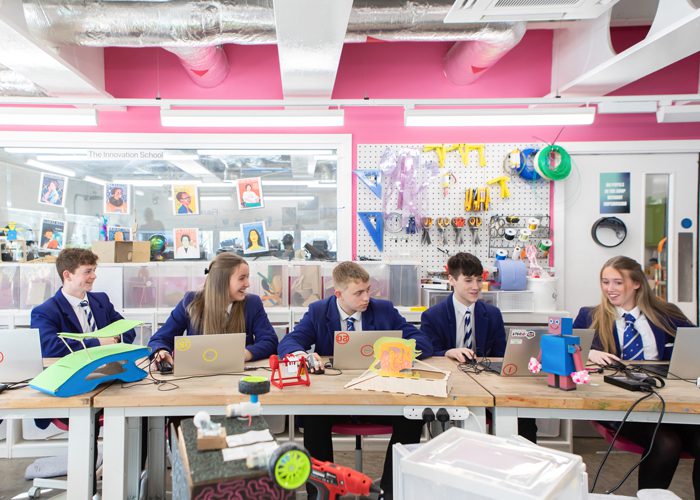NEARLY three-quarters of UK parents are worried about the rise of Artificial Intelligence (AI), new research has revealed.
A survey conducted by independent insights agency Opinion Matters on behalf of Kelvinside Academy examining the future of education found 71.4% of parents are concerned about the emerging new technology and whether their children are equipped to deal with it.
As ChatGPT continues to dominate headlines across the world, global bank Goldman Sachs recently estimated some 300 million roles could be lost or diminished by the development of AI, while AI pioneer Emad Mostaque said we are reaching a point where governments will need to introduce policy to control the development of the advancing technology.
But the biggest question seems to be whether, as technology advances rapidly, are we equipped to educate future generations about it?
While the International Baccalaureate (IB) has taken a progressive approach and allowed the credited use of Chat GPT in essays, eight of the UK’s 24 elite Russell Group universities – including Cambridge – have already banned it.
Glasgow’s Kelvinside Academy is home to the UK’s first full-time ‘innovation school’, which encourages young people to take problem-based approaches to learning.
The school gives access to industry-level equipment and promotes teaching of STEM subjects to early years learners, including an introduction to coding.
Recently, Kelvinside Academy has brought together pupils to be part of its AI Think Tank strategy group, where they work alongside teachers to explore how to use it in the most effective and appropriate way possible.
Dan Wyatt, rector at Kelvinside Academy, said: “I understand parents will have concerns, but investing time and energy into preventing the use of AI in our educational environment does a disservice to our young people.
“We must use that time and energy to harness it and develop our learners’ skills, competencies, and knowledge. Rather than seeing it as a threat, we must see it as an opportunity. We must teach pupils how to make the most of Chat GPT and other AI tools to enhance their learning and develop the research skills that will prepare them for the jobs of the future.
“Chat GPT alone is now accessed 13 million times per day. And that’s just one AI tool in its infancy.
“Our young people are the early adopters. They are naturally curious and playful. They should be rewarded for that curiosity and their agility in adopting new platforms.
The future jobs market will be driven by a generative AI dashboard. Our students need to be able to take driving lessons and learn to drive the machines of the future.”
Clare Sweeney, head of junior school at Kelvinside Academy, believes that making subjects accessible from a young age is crucial.
She added: “If a child can learn to encode and decode words to read and write, they can learn an algorithm is an algorithm. AI will be a vital skill for jobs of the future, and even if they don’t go on to use it in their career, it embeds computational thinking in every pupil.
“In the same way resources must be updated, so too must teaching skills and approaches, and that includes the introduction of AI to early years teaching.”
The study also showed that three-quarters of UK parents are worried that the education system isn’t preparing pupils for the workforce, as 73% of parents do not believe schools are teaching skills relevant to the job market.
To find out more about Kelvinside Academy, visit www.kelvinside.org/.
